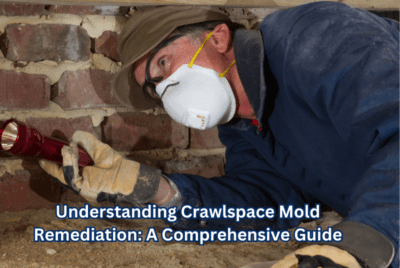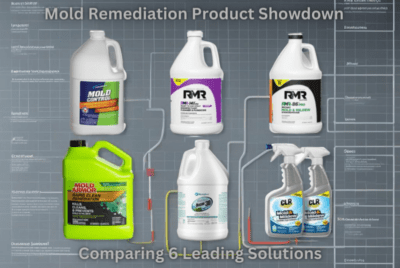Mold vs Mould: What’s the Difference?
Introduction: Mold vs Mould
Hello, curious minds! Ever found yourself scratching your head over the terms “mold” and “mould”? Trust me, you’re not the only one. This is especially perplexing when you’re trying to write something and want to get it just right. Whether you’re drafting an essay, a report, or even a tweet, knowing the difference between these two spellings is vital. So, Mold vs Mould: What is the Difference? let’s unravel this mystery together and find out why one might be more appropriate than the other in certain contexts.
Mould vs Mold: American versus British English
Mold in American English
“Mold” is the spelling you’ll frequently encounter in American English. This version of the word can refer to a frame for shaping something, like a cake mold, or the fungus that grows on bread when it’s left out too long.
Mould in British English
On the other hand, “mould” is how the British spell it. Much like its American counterpart, “mould” can also refer to a shaping frame or to fungi.
How to spell mold in Canada?
In Canada, both “mold” and “mould” are acceptable, but “mould” is more traditionally Canadian and aligns with British English spelling. While the American “mold” is also recognized due to the influence of American media and proximity to the U.S., if you want to stick to a more traditional Canadian spelling, “mould” is the way to go. However, with the growing influence of American English, don’t be surprised to see “mold” used frequently, especially in more modern publications or online platforms.
Usage in Context
Construction Material
In the context of construction, “mold” or “mould” can refer to a hollowed-out frame used for shaping materials like concrete. For example, you might say, “The concrete mould was prepared for casting.”
Organic Substance
In a biological context, both words describe the same fungus that you might find on food left out for too long or on walls in damp conditions.
Implications of Using Mold vs Mould
In Scientific Research
In scientific literature, it’s important to choose the appropriate term based on the journal’s guidelines. American journals will typically prefer “mold,” while British publications may use “mould.”
In Everyday Life
In everyday chats, using mold vs mould, can clue people into where you’re from. If you write “mould,” people might assume you’re from a region where British English is predominant.
Pronunciation
Both words are pronounced the same way: /moʊld/. The difference in spelling doesn’t change how you say the word.
Why Choose One Over the Other?
Clarity in Communication
Using the correct spelling based on your audience can help in clearer communication. For instance, if you’re writing for an American audience, using “mold” might make your message more relatable.
Audience Consideration
Always consider who you’re talking to or writing for. Tailoring your language can make a world of difference in how your message is received.
Our Reasoning at MoldRemediationHQ
Here at MoldRemediationHQ.com, we’ve chosen to use “mold” in line with our U.S. base. The U.S., following the standards of American English, predominantly uses “mold”. Our choice not only reflects our geographical location but also ensures we resonate more closely with our primary audience. This choice simplifies communication, reduces confusion, and provides a seamless experience for our readers who might be more accustomed to the American spelling. By keeping our content consistent with “mold“, we can effectively communicate, address concerns, and share insights without the distraction of linguistic differences.
Helpful Tips for Writers
Context is Key
Understanding the context of your writing can help you decide which term to use. Scientific journal? Check their guidelines. Blog post for a general audience? Consider your target readers’ location.
Be Consistent
Whichever spelling you choose, be consistent throughout your writing. Consistency helps maintain flow and readability.
Conclusion
Choosing between “mold” and “mould” boils down to understanding the origin, usage, and context. Both words essentially mean the same thing, but the spelling can vary depending on whether you’re using American or British English. Consequently, the next time you find yourself pondering which term to use, just think about your audience and the context—doing so will guide you in the right direction.
Frequently Asked Questions
-
-
Is mold and mould the same thing?
Absolutely. Both “mold” and “mould” reference the same entity, specifically the fungal growth that often appears on decaying food or damp surfaces. The difference in spelling arises from linguistic variations: “mold” is the preferred spelling in American English, while “mould” is favoured in British English. It’s essential to note that the meaning remains consistent across these spellings, only the orthography changes based on regional language conventions.
-
Is the pronunciation different?
No, both words are pronounced the same way: /moʊld/.
-
Is one spelling more correct than the other?
Neither spelling is more “correct” than the other; it’s simply a matter of regional preference. Both spellings convey the same meaning. However, it’s crucial to be consistent with your choice, especially within a single document or communication. It’s advisable to choose the version that aligns with your audience’s familiarity to ensure clarity and avoid confusion.
-
Why does American English use “mold” and British English use “mould”?
The divergence in spelling between American and British English can be traced back to historical influences, preferences, and standardizations. American English tends to favor shorter and more phonetic spellings, while British English has often retained older forms. Lexicographers and influential figures in American history, like Noah Webster, advocated for a more streamlined spelling, which is why “mold” is more prevalent in the U.S. Meanwhile, British English has retained the “ou” form in words like “colour,” “favour,” and “mould.”
-
Do other countries besides the U.S. and U.K. have a preference?
Yes, different countries might lean towards either the American or British spelling, often based on historical ties, media influence, or educational standards. For instance, as previously mentioned, Canada generally uses “mould,” aligning more with British English. In contrast, countries with stronger American influences or ties might lean towards the “mold” spelling. It’s always a good practice to research the preferred spelling if targeting a specific region or country.
-
Does the difference in spelling affect scientific or technical writing?
In scientific or technical contexts, consistency is key. While both “mold” and “mould” are understood, it’s essential to stick with one spelling throughout a document, paper, or study to maintain clarity. Depending on the journal’s or publication’s guidelines, one might be preferred over the other. For international journals or those with a global readership, they might specify their preferred spelling, so it’s always wise to check submission or style guidelines.
-
Does it matter which one I use in everyday language?
It might clue people into where you’re from, but generally, both are understood to mean the same thing.
-
For further reading visit these suggested sites:
- Merriam-Webster:
- Link: https://www.merriam-webster.com
- Description: The Merriam-Webster dictionary provides detailed etymology and usage of words. You might find insightful discussions on the distinction between “mold” and “mould”, including their historical and regional usage.
- The British Mycological Society:
- Link: https://www.britmycolsoc.org.uk
- Description: The British Mycological Society promotes the study of fungi. While their primary focus is on fungi in a biological sense, their publications and resources may offer deeper insights into the usage and significance of the term “mould” in scientific contexts.




